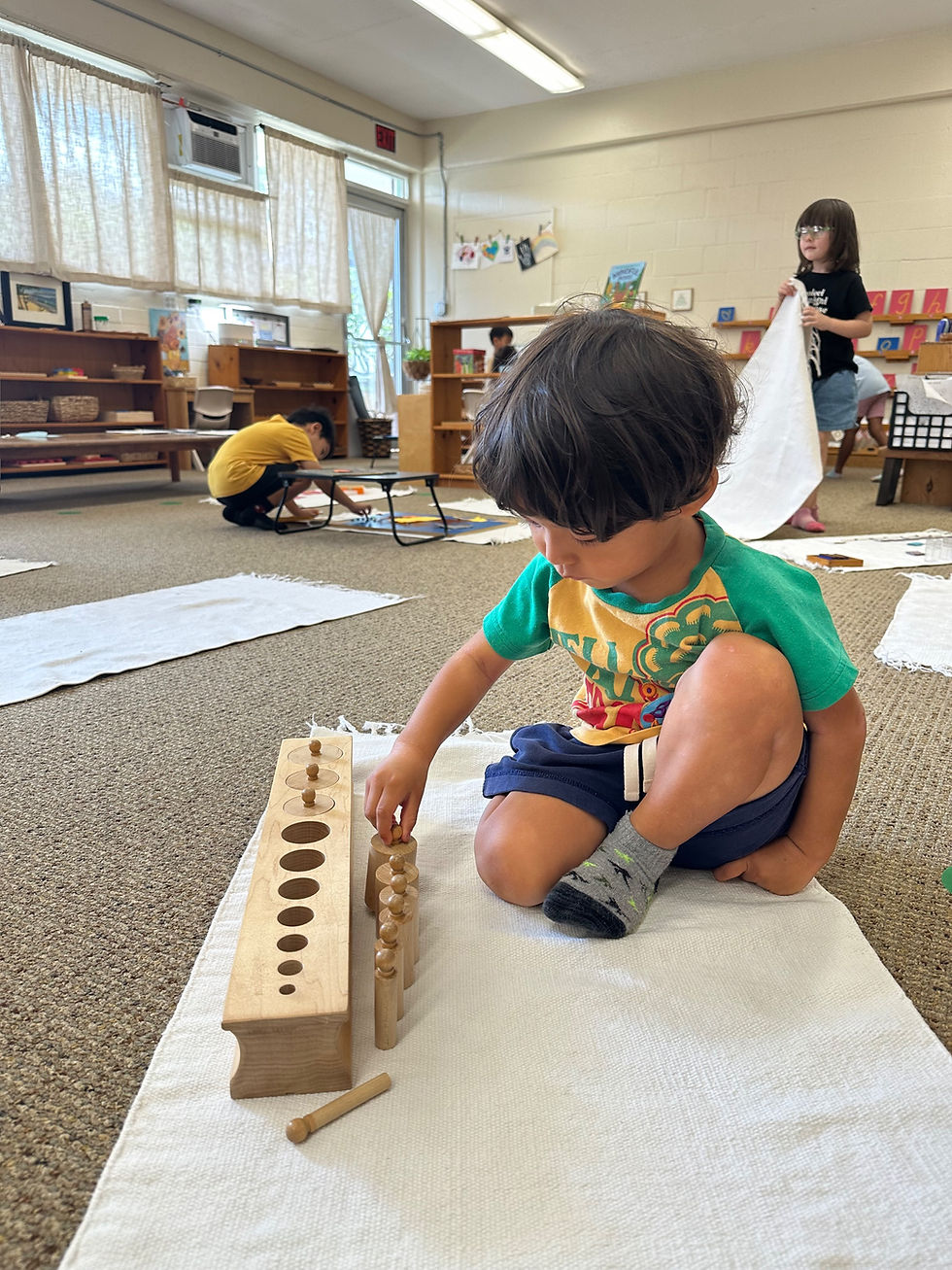Using the Language of Encouragement
- Montessori Community School

- Jul 7, 2022
- 2 min read

The language we use with children is so important!
The language we use with children is so important. In a Montessori classroom, you will notice that teachers do not overpraise their students. Instead of interrupting a child’s concentration with a judgment of their work and external reinforcements, the teacher will guide the child to focus on their own efforts and feelings about it with carefully-chosen phrases of encouragement. This allows children to build independence and develop intrinsic motivation, which leads to a sense of confidence and self-worth.
Examples of Montessori Phrases:
Instead of jumping in and doing something for the child, instead try “I want you to try, but I am here if you need help.”
Instead of saying “Good Job!” say “I saw you working hard.”
When a child asks you “do you like my picture?”, respond with, “What do you think about your work?” or “I notice many details in your picture. Can you please tell me about them?”
When a child asks you where something is, pause and ask “Hmm, where could you look for that?” instead of immediately jumping in and helping. Allow the child to think and consider.
Instead of saying “Stop running,” say “We walk inside our house.” Offer an explanation for different situations.
Instead of saying something like “sit down,” say “In our home, we all sit down so that we may enjoy our dinner.”
Instead of saying “stop that,” say “Maybe it’s time to walk away. You can come back to that when you’re ready.”
Instead of saying “You’re so helpful!” say “I appreciate your help with that, thank you.”
Instead of saying “I am so proud of you” say “you must be so proud of yourself.”
Instead of saying “If you hurry, we will go get candy later” say “It is important to be where we need to be on time.”
Instead of saying “If you eat all of your food, you can have extra playtime” say “Your body will feel good and be able to grow when you eat your food.”
Praise the Effort, Not the Outcome
When we praise or acknowledge the effort or process, rather than praising or rewarding the outcome, we convey to children that we notice and value how hard they work at a task, and the process they took to achieve the outcome. We also want them to know that mistakes are not just okay, but necessary in learning a new skill. This helps children to become self-assured and challenge-seeking learners.






